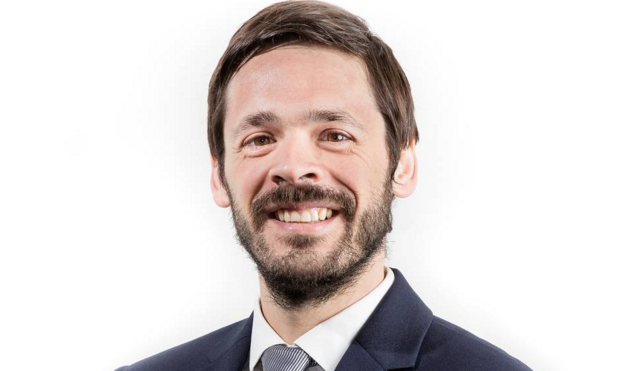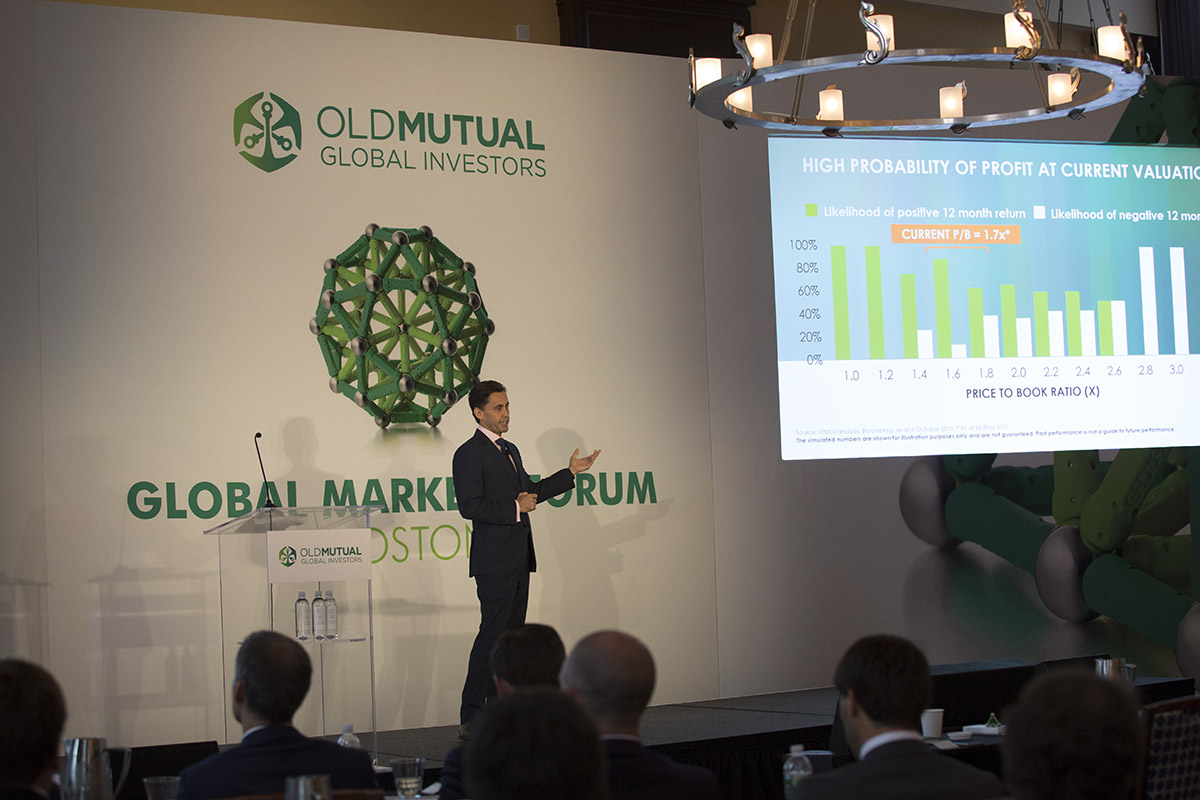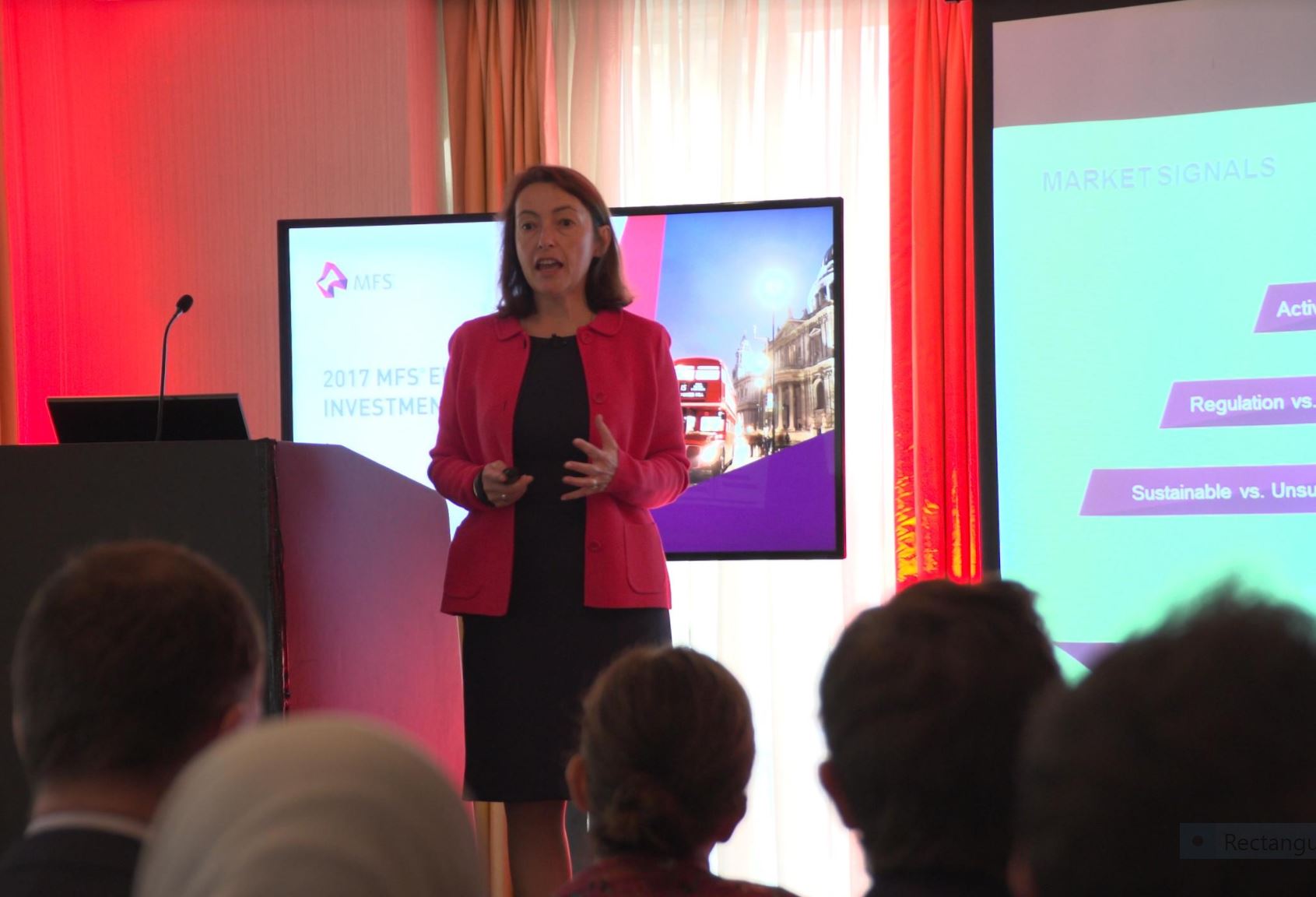MFS Investment Management: “It’s a Very Complex World for the Fixed Income Investor; a Passive Approach Doesn’t Make Sense”
| By Fórmate a Fondo | 0 Comentarios
During the 2017 MFS European Investment Forum in London, Bill Adams, Global Fixed Income CIO for MFS Investment Management, explained the different structural reasons why the Boston-based global investment management firm argues that the low interest rate environment will persist for some time, mainly because of a series of structural factors that are persistent headwinds, such as the level of global indebtedness, the disruption of technology which fundamentally affects the lack of inflation in wages, and demographic trends.
Examining structural trends
From a cyclical perspective, global growth has improved, but inflation expectations, both from the point of view of market participants, and from the point of view of central banks, have been persistently wrong.
“It is mainly in developed markets where inflation projections in economies are not being met. This is due to the lack of inflation in wages, money is not being put into workers’ hands and they have less money to return to the economy. And it is precisely this discontent with wages that has provoked the resurgence of populist movements. The disruption of technology has affected workers from both the middle and working classes, who’ve had to return to the labor market with lower wages. The economy’s inability to create inflation is an important issue,” said Bill Adams.
Another issue affecting wage inflation is demographic trends. In developed countries, birthrates have fallen below the level needed to sustain population growth (i.e., more deaths than births). According to MFS ‘research, this has very clear implications for economic growth, inflation and the demand for fixed income products. When older, more experienced workers retire, they do so with higher wages than those workers entering the labor market who may have lower productivity, less experience, and lower wage expectations. “We are seeing an economy that is constantly being challenged by lower growth and inflation in wages.” Adams noted that as more people approach retirement, their needs for income are greater than their needs for growth, the natural movement of these people is to seek greater exposure to fixed income than to equity. “This movement creates a persistent demand in the market for high quality debt.”
Incidentally, the leverage level of the global economies has increased considerably. “Any economy whose debt-to-GDP ratio exceeds 100, is impeding future growth by bringing it into the present. We know that the central banks responded to a challenging macroeconomic situation during the Global Financial Crisis, increasing the level of debt on their balance sheets, which caused higher leverage in the economy. There has certainly been an improvement in the metrics on the corporate side, but on public balance sheets, we are reaching the future that we have leveraged, and therefore, we are now struggling to achieve greater growth.”
The performance of central banks
Following Janet Yellen’s announcement at the Federal Reserve’s last meeting in September, the Fed’s balance sheet assets will decline from $ 4.5 trillion to $ 3.5 trillion. This will gradually remove liquidity from the market. But when you look at the central banks as a whole, they continue to provide greater liquidity. But, in global terms, the market continues to pursue an accommodative policy as long as central banks continue to maintain a large number of assets in their balance sheets. This is a trend that MFS does not expect to be reversed until the second half of 2018.
“The Fed’s performance has been very transparent and patient, revealing its plans very prudently. The plan that has been put in place to gradually reduce the size of its balance sheet reflects that they have spent a lot of time, energy, and trillions of dollars in getting the economy out of the stagnation of the financial crisis. I doubt they’d want to risk that progress because of a miscalculation in monetary policy, so the withdrawal will be very slow. Reducing that balance will put interest rates on a positive trajectory, but as long as it runs smoothly, it will ensure that interest rates rise gradually.”
Although similar growth trends are being observed in Europe, there is still no impact on the interest rate environment. European growth has lagged behind the US for years and is now closing that gap with the help of the European Central Bank. “Inflation in Europe starts from a smaller base, and is not yet at a US level.” explained the asset manager.
Where are the opportunities in global fixed income?
Adams argued for the importance of talking to investors about preserving capital, but believes that it is equally critical to expand the opportunities presented in fixed income beyond the country in which the investor resides, seeking global alternatives, and ultimately seeking an active process, with a strong credit selection process, rather than a passive investment or exposure to ETFs.
“At MFS we are increasingly comfortable with the duration of the United States, rather than with the duration of developed Europe or Japan. We are comfortable in choosing portfolio duration, but we are overweighting US duration over developed Europe and Japan. This is an example of how global duration is diversified.”
Since mid-2016, it has been a wonderful environment for risky assets, both high-yield fixed income and emerging fixed income experienced a rally, but at MFS they are beginning to question those good tidings, wondering whether it’s time to ‘take the foot off the accelerator’ and emphasize the preservation of capital.
“Investors should continue to invest in fixed income. There are still opportunities in the market for adding value, but instead of being in an environment where all you had to do was to buy the market, this environment requires higher levels of selection. You need to understand the companies and know what they are offering their investors.”
Adams compared the dispersion in the spreads of the lower part of the high-yield debt spectrum (with CCC rating) against the higher part (BB rating). A collapse in the levels of spreads has been observed and risk has positioned itself aggressively as compared to its lower risk alternative. “High-yield debt with a CCC rating has a default rate of approximately 35% historically, so if you try to get returns by investing in this type of debt, your losses could be greater than what you expect to earn. We are not convinced investors are being adequately compensated for the level of risk in the CCC part of the market.”
Finally, the MFS global debt specialist points out that emerging sovereign debt has responded less aggressively than the high-yield market, so that relative value bets can still be positioned in emerging markets.
“We live in a very complex world, with many challenges for bond investors. We are promoting among our investors the benefits of expanding their investment horizon, with an active selection of securities in that type of environment. When the spreads are compressed and the markets lack dispersion, a passive focus on investments doesn’t make sense to us,” he concludes.







